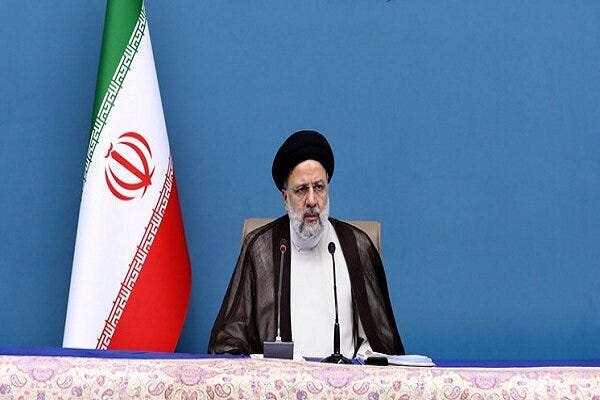Iran's Latest Space Developments
Iranian officials announce an Internet of Things satellite constellation; Iran and Russia sign a launch services agreement; and Iran's president hails the country's space programme
When analysing Iranian space developments it is traditionally required to understand the big difference between official proclamations and propaganda versus the rather sparse reality of Iran’s space power.
More recently, however, there has been a spurt in Iranian space activity that almost matches the soaring and defiant rhetoric of Tehran’s bellicose politicians and officials. Recent space successes such as the ‘successful’* launch of satellites made in Iran on board indigenously built solid-fuel launch vehicles in 2020 and again in early 2022, as well as the Russian launch of Iran’s only high-resolution Earth observation satellite in August 2022 are examples of these recent successes. They likely provide a psychological and political momentum for what has mostly been a deeply troubled and mismanaged space programme and this past week as seen several announcements that come on the back of these recent successes.
First, the Iranian Space Agency announced plans to build an Internet of Things (IoT) satellite constellation that is to be named the Martyr Soleimani Constellation in honour of the Quds Force Commander, Qassem Soleimani, who was killed in an American airstrike in Baghdad, Iraq, in January 2019.
The Iranian Space Agency is inviting Iranian ‘knowledge-based’ companied with expertise in communications and satellite manufacturing to participate in the project. Most, if not all, of these companies will be Islamic Republic Guard Corps (IRGC) front companies that are under the severest sanctions and are notoriously corrupt in a country that has suffered endemic corruption.
The purpose of the Martyr Soleimani Constellation is to provide a space-based infrastructural core for Iran to provide an IoT network for the national economy and government in sectors such as agriculture, transportation, environment, energy, and other critical infrastructure.
The Martyr Soleimani Constellation is one of several programmes approved by Iran’s Supreme Space Council on Tuesday, 3 January 2023 (see below).
Second, on Thursday, 5 January 2023, Russia’s state space corporation Roscosmos announced that it has signed a launch services cooperation memorandum of understanding with Iranian space companies SAHAB and SpaceOmid. Details of what this MoU provides in substance are absent in the announcement, but it does suggest that Iran is looking to Russia to provide launch services for its next-generation communication satellites that are larger in size and mass compared to the nanosatellites and Cubesats previously built in Iran.
Yury Borisov (left), head of Russia’s Roscosmos, and Hassan Salarieh (right), head of the Iranian Space Agency, signing their space cooperation agreement in December 2022. Image courtesy of Iran International (iranintl.com).
This MoU comes several weeks after Russia’s Roscosmos and the Iranian Space Agency signed an agreement to cooperate with each other to design and build communication and Earth observation satellites, as well as other space infrastructure, together. That agreement was signed against the wider geopolitical backdrop of much closer Iranian-Russian relations as Russia now relies on Iran for drone technologies to continue its war against Ukraine, as well as a much needed economic lifeline for its internationally isolated economy. For Iran's part, closer ties with Moscow provides for its own economic lifeline as well as access to technologies - to include space and satellite technologies - that it desperately needs.
Third, and finally, the 3 January 2023 meeting of Iran’s Supreme Space Council saw agreement on its 10-year space programme that will seek to become the region’s leading hub for developing space technologies and providing launch services. This ambition will be mightily difficult for Iran to achieve given severe economic sanctions and lack of access to fundamental technologies to build an advanced space programme. This is especially the case when both the United Arab Emirates and Saudi Arabia have similar space ambitions and are more likely to achieve them given their favourable economic performances and creative ease of access to advanced technology and global talent.
Iranian President Ebrahim Raeisi.
Still, this obvious limitation did not stop Iranian president Ebrahim Raeisi, who chairs the Supreme Space Council, from lauding his countries space programme and ambition while engaging in obligatory fiery rhetoric against the West. President Raeisi’s remarks included the following points:
“Further progress by the country in the field of placing satellites into the Earth's orbit would neutralize the enemies' plots in the area of broadcasting anti-Iranian television and satellite channels,” referencing the need for Iran to develop and launch its own geostationary communication satellites;
Emphasised the peaceful nature of Iran’s space programme that will bring economic and scientific benefits to the country, and rejecting the Western characterisation that the space programme in Iran is a purely military one;
Stressed the necessity to commercialise as much of Iran’s space activities as possible given current global realities (but perhaps a hint that Iran’s space programme cannot expect to rely on government spending indefinitely).




